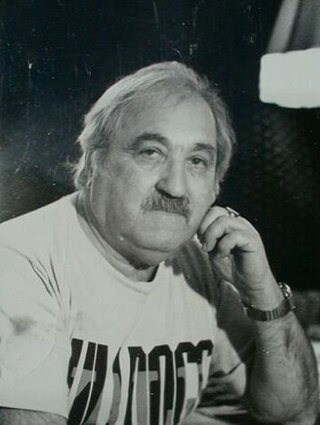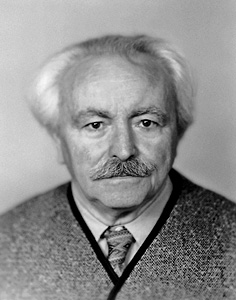Related Research Articles

Russian literature refers to the literature of Russia, its émigrés, and to Russian-language literature. The roots of Russian literature can be traced to the Early Middle Ages when Old Church Slavonic was introduced as a liturgical language and became used as a literary language. The native Russian vernacular remained the use within oral literature as well as written for decrees, laws, massages, chronicles, military tales, and so on. By the Age of Enlightenment, literature had grown in importance, and from the early 1830s, Russian literature underwent an astounding "Golden Age" in poetry, prose and drama. The Romantic movement contributed to a flowering of literary talent: poet Vasily Zhukovsky and later his protégé Alexander Pushkin came to the fore. Mikhail Lermontov was one of the most important poets and novelists. Nikolai Gogol and Ivan Turgenev wrote masterful short stories and novels. Fyodor Dostoevsky and Leo Tolstoy became internationally renowned. Other important figures were Ivan Goncharov, Mikhail Saltykov-Shchedrin and Nikolai Leskov. In the second half of the century Anton Chekhov excelled in short stories and became a leading dramatist. The end of the 19th century and the beginning of the 20th century is sometimes called the Silver Age of Russian poetry. The poets most often associated with the "Silver Age" are Konstantin Balmont, Valery Bryusov, Alexander Blok, Anna Akhmatova, Nikolay Gumilyov, Sergei Yesenin, Vladimir Mayakovsky, and Marina Tsvetaeva. This era produced some first-rate novelists and short-story writers, such as Aleksandr Kuprin and Nobel Prize winners Ivan Bunin, Leonid Andreyev, Fyodor Sologub, Yevgeny Zamyatin, Alexander Belyaev, Andrei Bely and Maxim Gorky.

Mikhail Naumovich Epstein is a Russian-American literary scholar, essayist, and cultural theorist best known for his contributions to the study of Russian postmodernism. He is the Emeritus S. C. Dobbs Professor of Cultural Theory and Russian Literature at Emory University, Atlanta, Georgia. His writings encompass Russian literature and intellectual history, the philosophy of religion, the creation of new ideas in the age of electronic media, semiotics, and interdisciplinary approaches in the humanities. His works have been translated into over 26 languages.
Soviet nonconformist art was Soviet art produced in the former Soviet Union outside the control of the Soviet state started in the Stalinist era, in particular, outside of the rubric of Socialist Realism. Other terms used to refer to this phenomenon are Soviet counterculture, "underground art" or "unofficial art".
Metarealism is a direction in Russian poetry and art that was born in the 1970s to the 1980s. The term was first used by Mikhail Epshtein, who coined it in 1981 and made it public in the Soviet magazine "Voprosy Literatury" in 1983
Post-postmodernism is a wide-ranging set of developments in critical theory, philosophy, architecture, art, literature, and culture which are emerging from and reacting to postmodernism.
The Moscow Conceptualist, or Russian Conceptualist, artistic and literary movement began with the Sots art of Komar and Melamid in the early 1970s Soviet Union, and continued as a trend in Soviet nonconformist art into the 1980s. It attempted to subvert socialist ideology using the strategies of western conceptual art and appropriation art. It was an artistic counterpoint to Socialist Realism, and the artists experimented aesthetically in a wide range of media, including painting, sculpture, performance, and literature. As Joseph Bakshtein explained, "The creation of this nonconformist tradition was impelled by the fact that an outsider in the Soviet empire stood alone against a tremendous state machine, a great Leviathan that threatened to engulf him. To preserve one's identity in this situation, one had to create a separate value system, including a system of aesthetic values."

Genrikh Sapgir was a Russian poet and fiction writer of Jewish descent.
Dmitry Yevgenyevich Galkovsky is a Russian writer, journalist, philosopher and blogger. He is best-known as the author of the novel The Infinite Deadlock.

Dmitri Aleksandrovich Prigov was a Russian writer and artist. Prigov was part of the unofficial Moscow Conceptualists during the era of the Soviet Union and was briefly sent to a psychiatric hospital in 1986.
Post-theism is the belief that the belief in a god belongs to a previous stage of human development and, thus, a division of theism vs. atheism is obsolete. It is a variant of nontheism. The term appears in liberal Christianity and post-Christianity.

Alexei Khvostenko was a Russian avant-garde poet, singer-songwriter, artist and sculptor. Khvostenko is also frequently referred to by the nickname Khvost, meaning "tail".
The Andrei Bely Prize is the oldest independent literary prize awarded in Russia. It was established in 1978 by the staff of Hours, the largest samizdat literary journal in Leningrad, to recognize excellence in three categories: prose, poetry, and theory. Among its founders were Boris Ivanov, Boris Ostanin, Arkadii Dragomoshchenko, and other eminent figures of uncensored literature. The prize was named for Andrei Bely, whose influence spanned Russian poetry, prose, and humanitarianism.

Dmitry Ivanovich Maevsky was a Soviet Russian painter, lived and worked in Leningrad, a member of the Leningrad Union of Artists, regarded as one of the representatives of the Leningrad school of painting, most famous for his lyrical landscapes.

Mikhail Davidovich Natarevich was a Soviet, Russian painter who lived and worked in Leningrad; he was a member of the Leningrad Union of Artists, and was regarded as one of the brightest representatives of the Leningrad School of Painting.

Nadezhda Pavlovna Shteinmiller was a Russian Soviet realist painter, graphic artist, art teacher, scenographer, and stage designer who lived and worked in Leningrad. She was a member of the Leningrad Union of Artists, regarded as one of the leading representatives of the Leningrad School of Painting.
The year 1960 was marked by many events that left an imprint on the history of Soviet and Russian Fine Arts.

Exhibition of Leningrad artists of 1950 became one of the notable event in Art live of Leningrad of the beginning of 1950s. The Exhibition took place in the State Russian Museum.

Spring Exhibition of Leningrad artists of 1969 opened in the Exhibition Halls of the Leningrad Union of Soviet Artists to become one of notable Art Exhibition of 1969 in the Soviet Union.
References
- ↑ Epstein, Mikhail (1995). After the Future: The Paradoxes of Postmodernism and Contemporary Russian Culture . Amherst: University of Massachusetts Press. ISBN 0870239732.
- ↑ Epstein, Mikhail; Genis, Alexander; Vladiv-Glover, Slobodanka (2016) [1999]. Russian Postmodernism: New Perspectives on Post-Soviet Culture. Translated by Slobodanka Vladiv-Glover (Rev. ed.). New York; Oxford: Berghahn Books. ISBN 978-1-78238-864-7.
- ↑ Perloff, Marjorie (January 1993). "Russian Postmodernism: An Oxymoron?". Postmodern Culture . 3 (2). doi:10.1353/pmc.1993.0018. S2CID 144239001.
- ↑ Kahn, Andrew; Lipovetsky, Mark; Reyfman, Irina; Sandler, Stephanie (2018). A History of Russian Literature. Oxford: Oxford University Press. ISBN 9780199663941. pp. 693–94.
- ↑ Kahn et al. 2018, pp. 631–35.
- ↑ Tupitsyn, Victor (2009). The Museological Unconscious: Communal (post)modernism in Russia. MIT Press. p. 35. ISBN 978-0-262-20173-5.
- ↑ Epstein, Genis & Vladiv-Glover 2016, pp. 169–176, Theses on Metarealism and Conceptualism.
- ↑ Kahn et al. 2018, pp. 639–41.
- ↑ Watten, Barrett (January 1993). "Post-Soviet subjectivity in Arkadii Dragomoshchenko and Ilya Kabakov". Postmodern Culture . 3 (2). doi:10.1353/pmc.1993.0018. S2CID 144239001.